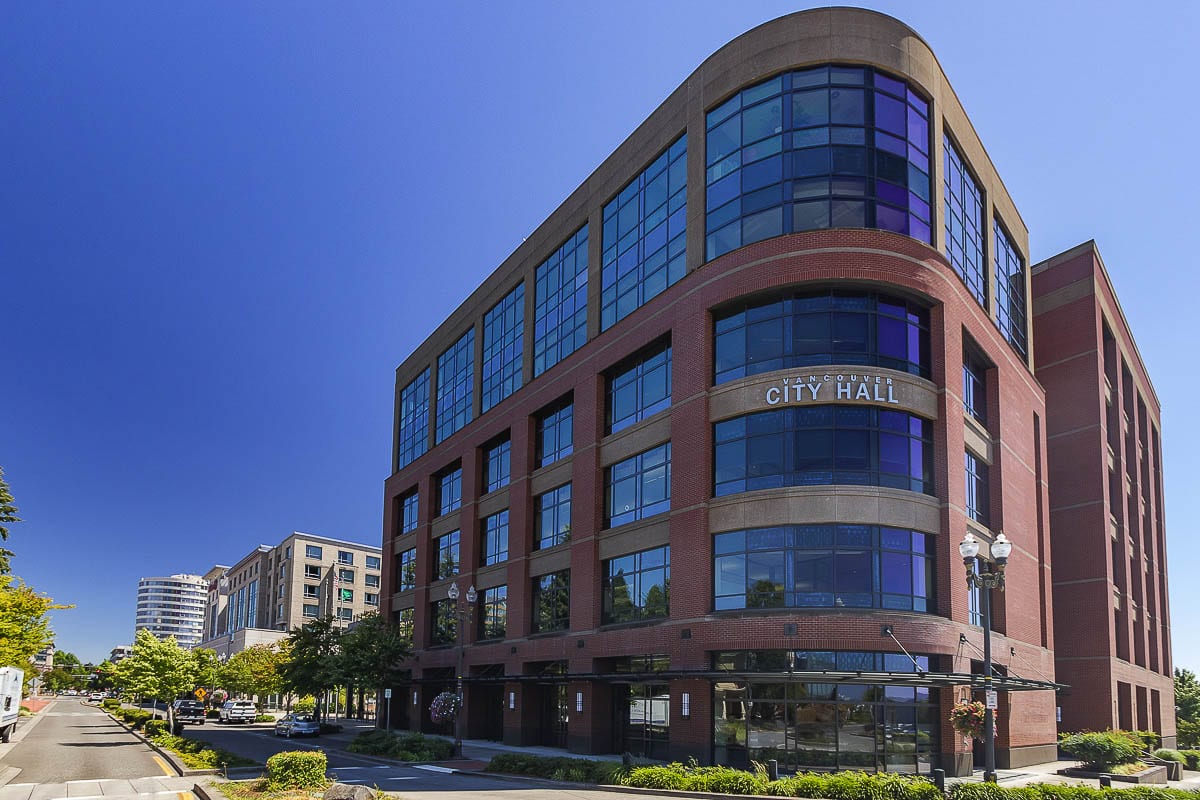With economic uncertainty remaining, Eric Holmes tries to play it safe with proposed budget
VANCOUVER — Budget forecasting is difficult work in the best of times.
In the midst of a pandemic that created record unemployment and kept millions of people home for weeks at a time, it could be nigh impossible.

But that’s the task facing city and county officials right now as the year winds down and budget season ramps up.
The Vancouver City Council kicked off the first of five work sessions this week, focusing on the various aspects of the 2021-22 biennial budget.
Monday’s presentation covered an overview of City Manager Eric Holmes’ recommended budget. The $1.3-billion budget would represent a 3.2-percent decrease over the current 2019-2020 budget, but still represents a far more optimistic outlook than even four months ago.
“I can’t emphasize enough that we continue to be an environment with significant uncertainty,” Holmes told the council by way of introducing the virtual presentation. “The pandemic has not been brought under control and continues to claim lives of folks in this country and around the world.”
The revenue forecast in June called for a potential $27-million decline in the city’s budget for next year. September’s updated forecast was better, in some ways, and less rosey in others.
“Many things have changed since then,” said Chief Financial Officer Natasha Ramras during her virtual presentation, “but one big factor that has not changed since that time period is the amount of the uncertainty in the economy that still remains.”
Property tax revenue has largely been a bright spot, coming in at $700,000 more than estimated in July, though Ramras noted that payments could drop off in October.
“As of the month of August, we’re still receiving the June collections,” she said, adding that September data is likely still being boosted by stimulus payments last spring, and a federal $600 per week unemployment subsidy which expired in July.
“The month of October, as we’ve talked about, will be very important,” said Ramras, “because that is when we will know what, if anything, is going to impact our property tax collections.”
Sales tax revenue has been much stronger than expected, coming in at $11 million more than forecast in July.
Overall, revenue is coming in $14 million more than the July forecast. Holmes’ budget would use that revenue as one-time funding for capital projects already in the pipeline.
The updated forecast now anticipates a less severe downturn, but a longer recovery period, with the Vancouver economy likely not reaching pre-pandemic levels until 2025.
The recommended budget will freeze 20 full-time positions, largely in finance, IT, groundskeeping, non-uniformed Vancouver Police positions, and recreation.
It will also add 15 other full-time positions, including a Diversity and Inclusion director, a deputy city manager, as well as a parks developer.
“Overall, this is one of the leanest budgets that we have had,” said Ramras. “We have been really watchful of all of the new increases in staffing, to make sure that we are financially sustainable over time and in the future.”
The budget anticipates a total of 1,190 full-time city employees by 2022, which is still 26 fewer positions than the city had in 2007, before the great recession hit.
“Those changes protected our uniformed positions” noted Ramras, “since public safety remains one of the highest priorities of the city.”
The city manager’s budget also strives to preserve some of what the community most wanted from the Stronger Vancouver visioning process, which was suspended as the pandemic took hold.
That includes the adoption of a new state program which allows the city to retain one-tenth of a percent of their local sales tax in order to fund affordable housing. It would also fund improvements to several parks, as well as developing Shaffer Park near Walnut Grove Elementary School, which would be funded through increased Park Impact Fees for new developments.
Holmes’ budget would also fund the design process for a new city operations center, though the construction costs would need to be approved in the 2023-24 city budget.
“The city has almost secured the land for the replacement center,” Ramras said, “and we’ll be working on design over the next year.”
The $1.3 billion budget breaks down with $1.1 billion in operations, including $479 million for general, street, and fire funds. $206.8 million would fund capital projects, including the completion of a future Fire Station 11 (in partnership with Fire District 5), the completion of a new police headquarters and training center at 521 Chkalov Drive, demolition of the former Tower Mall, roof replacements and sidewalk repairs along Officer’s Row, and a number of other maintenance projects for city-owned buildings.
The budget also recommends taking a 0.6 percent property tax levy increase, while banking the remaining capacity.
Future work sessions will focus in more detail on various elements of the budget, including transportation projects, capital funding, and reductions.
A first reading of the budget is scheduled for the Nov. 9 council meeting, with a public hearing and possible vote on Nov. 16.




